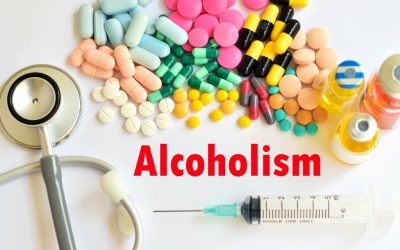Making an informed decision to care for yourself and to be aware is part of the recovery journey that leads to self-discovery. Years into sobriety, I’ve learned that the colorless life I once pictured could not be further from reality. The world didn’t lose its color; rather, it became more vibrant. For me, the habitual, mindless sipping gave way to a profound presence in each moment, with every sip of life savored.
- The truth is other people are usually far less focused on you than you believe.
- You may be told you are selfish because you are caring for yourself and trying to create a life for yourself.
Ways to Manage Alcohol Cravings
She realized that she used alcohol as a reward for a hard week’s work. “Getting through a Friday evening without my reward, you know, that was the tough one,” Dierker says. There are also support groups such as Moderation Management, which aims to help drinkers who are trying to cut back.
Connect with a therapist
It’s not uncommon for young adults to encourage one another to drink in excess, mix their drinks, or add rounds of shots. Even older adults can find it harder to turn down “one more drink” when they’re out having fun with friends. And peer pressure doesn’t necessarily come in the form of friends loudly encouraging you to drink more. You might convince yourself that you need to drink to impress someone or fit in with the crowd. This can be particularly true of teens who want to drink to seem older or more mature. As you start to prioritize your alcohol use, it can have a negative effect on your work, school, or social life.
She notes that it can help to avoid your triggers as much as possible in early recovery, since triggers are often most intense when you first stop drinking. Internal triggerstypically involve memories, thoughts, emotions, or physical sensations that prompt the urge to drink. Most people who experience cravings notice a mix of internal and external triggers.
Talking to Friends and Family About Your Drinking
If your body is used to a certain amount of alcohol, you may feel certain effects when you stop. How you feel when you stop drinking is largely based on how often and how heavily you drink. People who only drink occasionally probably won’t notice any physical or psychological symptoms.
Talk to your doctor and talk to your primary care provider,” said Dr. Balasanova. “Or if you have a psychiatrist why can’t i control my drinking or mental health specialist, talk to them. According to an American Psychological Association report (PDF), nearly one in four adults reported drinking more alcohol to cope with the stress of the COVID-19 pandemic.
Therapy can help you understand why you drink and learn new habits so you can live a healthy lifestyle that doesn’t rely on alcohol as a crutch. It can also help you gain a new perspective as you consider how your life will change without alcohol. In order to change your drinking habits, your first step is to take a close look at your current behaviors and find patterns. When not drinking, you might begin to notice feelings of anxiety or other emotional distress, along with strong cravings for alcohol. Cravings won’t necessarily affect everyone who cuts back on alcohol. Still, they’re pretty common, especially if you drink regularly or your alcohol use falls into the “heavy drinking” category (binge drinking 5 or more days in the last month).
- You may think that because you’re not physically dependent on alcohol and don’t have to drink every day that your drinking isn’t harmful.
- These effects can also impact the safety and well-being of people around you.
- Or perhaps you later feel shame and embarrassment about things you said and did while under the influence.
- Experts define moderate alcohol use as one drink a day for women and two for men.
- This way we, rather than the drinking, are in control.
How to Stop Self-Medicating Depression, Anxiety, and Stress

If you turn to alcohol to manage emotional distress, the added overwhelm can prompt the urge to drink, making success seem even more out of reach. Becoming more aware of your alcohol triggers and reasons for drinking can help you plan ways to help manage the urge to drink. For example, arriving home was the cue I learned to link with the reward of unwinding. Reaching into the fridge and cracking open a beer can is the routine I knew would produce a sense of relaxation.
ChangeMedEd® 2025

This disorder also involves having to drink more to get the same effect or having withdrawal symptoms when you rapidly decrease or stop drinking. Alcohol use disorder includes a level of drinking that’s sometimes called alcoholism. The important thing is that we understand our relationship with alcohol, realize where it may not be serving us, and make informed decisions about its presence in our lives. This way we, rather than the drinking, are in control. That was a time when I thought of alcohol as the go-to answer to make any occasion special. But here comes the irony—as a decade-long daily drinker, there was actually nothing special about having some drinks.
And the tricky part of the moderation path is that there’s no way to know which heavy drinkers can learn to control their drinking rather than having to give it up completely. Instead of drinking beer on a Friday night, “I’d drink seltzer water … and dance in the playroom with my son,” she says. “First and foremost, if you really feel like things are out of control, please seek help.
Leave A Comment